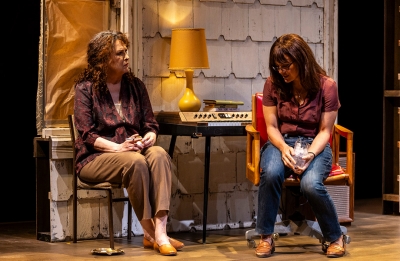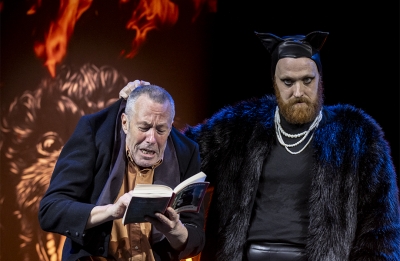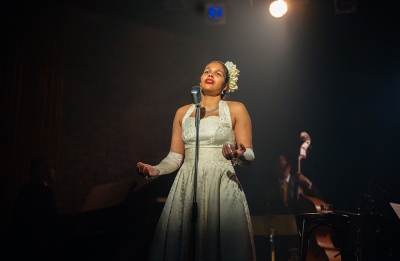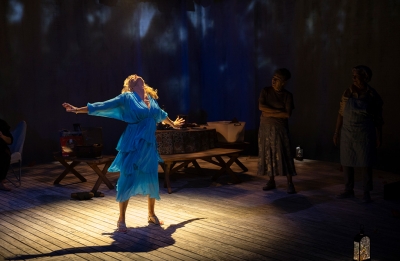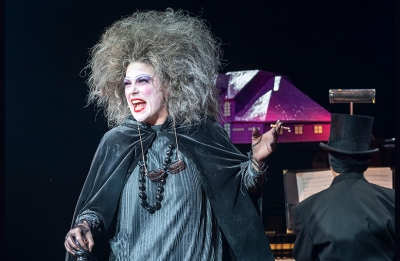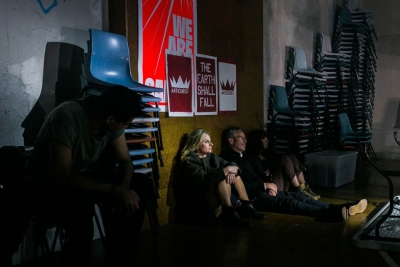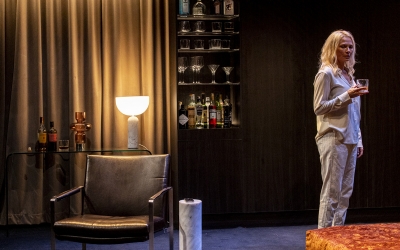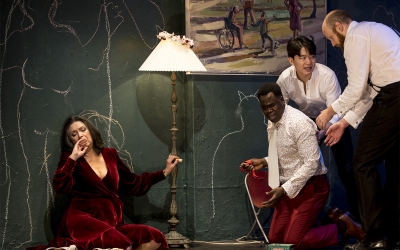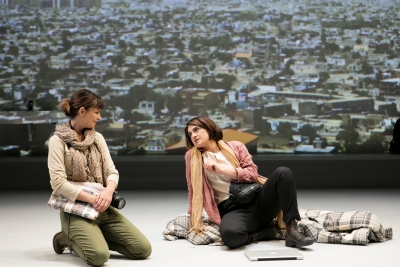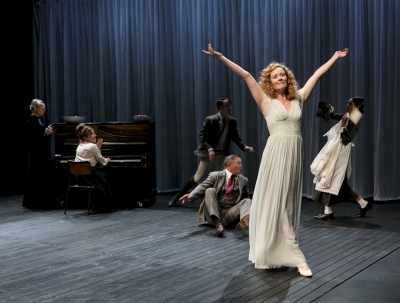Belvoir St Theatre
Don’t contradict strange gentlemen. Take special care around the George Street light rail. Watch out for flying pigs. Treat any black cat you might meet with caution, especially ones that speak to you. Woland and his satanic crew have taken up residence at Belvoir.
... (read more)What makes the physical and mental disintegration of famous performers so compulsively fascinating to so many people? The breakdown of a talented artist, usually female, brought down by her insecurities and the betrayal and abandonment of those close to her, usually male, is a trope that is endlessly trotted out to and repeatedly lapped up by audiences.
... (read more)The Weekend is a Trojan horse of a play. In setting and humour, the production shares a family resemblance to many of David Williamson’s comedies of middle-class manners. The scene is a beach house on the Central Coast of New South Wales over Christmas. Our characters are three white women of seeming privilege in their early seventies who throw around one-liners about sourdough bread and poke fun at the excesses of enfant terrible male theatre directors (think Simon Stone or Benedict Andrews). The women even dance, Big Chill style, to a Carole King song as they reminisce about their youth.
... (read more)Caryl Churchill’s Light Shining in Buckinghamshire, first performed in 1976, is a dense and difficult play set during the English Civil War. The period may be distant in time but Churchill, working in a broadly Marxist tradition, sees it as an era when fundamental questions of governance were tested by a mass of ordinary people. From whom does the state derive authority, and is a person bound to obey laws they find unjust? Does the existence of private property – those enclosed lands cultivated for the profit of a few – offend against the common good? Do the rich offend God? ‘For a short time when the king had been defeated anything seemed possible,’ Churchill wrote in a 1978 introductory note. The possibilities included, for some, Christ’s return and with it the instigation of an earthly Paradise.
... (read more)Although America produced other alternative filmmakers of his generation like Kenneth Anger and Maya Deren, John Cassavetes (1929–89) would have to be considered the doyen of the movement. Directors as diverse as Martin Scorsese, Jim Jarmusch, Peter Bogdanovich, and Pedro Almodóvar have acknowledged his influence. Technically rough though they may sometimes be, Cassavetes’ films have a raw power that, in the words of Amy Taubin, ‘catch you up, turn you around, bore you a little, startle you, and throw you out upset and confused’. Opening Night (1977), a film that was undervalued when it first appeared and is now perhaps somewhat overvalued, is no exception.
... (read more)What did Anton Pavlovich Chekhov ever do to Sydney theatre that Sydney theatre should treat him as it does? Since Tamas Ascher’s superb STC production of Uncle Vanya hit the stage in 2010, Sydney has been subjected to performances of The Seagull, Ivanov, The Present (aka Platonov), and Three Sisters that, in their attempts to be ‘relevant’, have ridden roughshod over the subtle, devastatingly acute dissections of humanity with which Chekhov presents us.
... (read more)Picture this: it’s 7pm. The news begins. There’s the jingle, a few stories about Australian political goings-on, then a piece about a war-torn country overseas. What do you see? A foreign correspondent, flak jacket on, standing in a bombed-out street or a hospital ward full of bloodied bodies. They speak for a few minutes, describing the horror. The news moves on. We go back to our lives. But what happens next for the reporter?
... (read more)My Brilliant Career may not be Belvoir’s first post-pandemic show, but it’s surely the most joyous. Hot on the heels of a government exemption raising audience numbers to seventy-five per cent capacity, the mood on opening night was exuberant – almost as exuberant as Sybylla Melvyn, My Brilliant Career’s impossible yet impossible-not-to-love protagonist.
... (read more)
